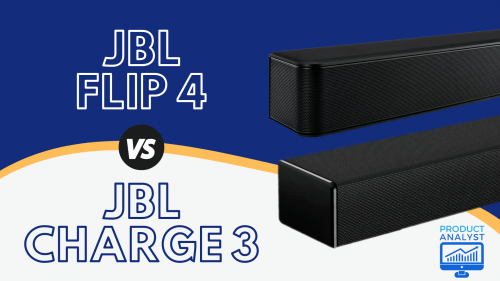
Bluetooth speakers are very convenient and easily portable. Waterproof Bluetooth speakers add a layer of protection in wetter environments, but do they hold up to their waterproof ratings? To make sure you won’t end up with just a water-resistant Bluetooth speaker, our experts have created a comparison between the JBL Flip 4 VS Charge 3.
JBL Flip 4 or Charge 3?
Features of JBL Flip 4 and Charge 3
Design and Build
As mentioned previously in this JBL Charge 3 VS Flip 4 comparison, one is larger than the other, and that could affect how portable it is for your circumstances.
The JBL Charge 3 is the larger of the two and measures at 8.38 x 3.42 x 3.48 in or (213 x 87 x 88.5 mm), and the smaller JBL Flip 4 is 6.89 x 2.68 x 2.76 in or (175 x 68 x 70 mm). Even though the JBL Charge 3 is larger, the weight difference between the two is barely noticeable. The JBL Charge 3 is 1.76 pounds and the Flip 4 is 1.13 pounds.
They both have a rubber base for easy placement on surfaces and will prevent the speakers from slipping. Both the JBL Flip 4 VS Charge 3 can be placed on their sides for more versatility.
Also, the control panel on both portable speakers has the same controls. By using the control panel on these portable speakers, you can turn them on or off, connect to Bluetooth devices, play or pause the content and control the volume levels.
The control buttons are located under a protective rubber flap to make sure you don’t get any water on it.
The overall appearance of the Charge 3 wireless speaker and the Flip 4 wireless speaker is also similar. They have a cylindrical design with wraparound grilles and the JBL logo across the center. What our experts really like about the two wireless speakers are not only the design, but also the quality and feel.
Sound Quality
The frequency response on both wireless speakers are low. Low frequency responses means more thunderous bass. Even from such small creations, you can expect some pretty impressive bass notes. The bass produced by the Flip 4 is clear and accurate and punctuates and balances the highs and mids quite well.
On the other hand, the Charge 3 is heavily bass-focused, which means there is less attention going to the mids and highs. As a result, it won’t produce the higher spectrum as clearly as the Flip 4.
There are both pros and cons to the two, so our experts sum up the sound quality by saying the Flip 4 is the better option for those who want balanced audio and the Charge 3 is the more desirable choice for lovers of bass and deep thumps. However, for overall better sound, we still like the Flip 4.
When both speakers are taken out into the open, they are both very powerful with the Charge 3 having a tad wider reach. However, in most regular venues, they are both neck and neck in terms of audio channeling.
Durability of the JBL Flip 4 and Charge 3
They are small speakers with vivid colors that seem to not be very durable at first glance. But when our experts unboxed them and inspected each speaker in detail, they found that the Flip 4 VS JBL have a very luxurious feel that screams of high quality.
They both have the same waterproof rating of IPx7, which basically equates to no fear of rain, spills, and even accidental submersion! However, just to be on the safe side, our experts advise you not to put your speaker waterproof ability to the test.
You can feel comfortable resuming with your plans even in the rain and relax when you accidentally spill beverages on your speaker. Just take a damp cloth to it or even run it under water for the best cleaning results.
For small speakers, the JBL Flip 4 and Charge 3 are very sturdy additions to your audio arsenal and they are also very easy to use. The size difference will not impact the use and performance of either device.
Portability of the JBL Flip 4 and Charge 3
Since both the Flip 4 and the Charge 3 are very small, they are a great choice for playing music and other content on-the-go.
People might worry about the charging since running out of battery life while away from home can be a headache. All you need to do is connect the speaker to a portable battery or even your smartphone in the case of the Charge 3 to power it up again.
Our experts feel the Charge 3 ranks higher in the portability department because it has a USB charging port and the Flip 4 does not. The presence of the charging port means even if you run out of battery, you can prolong the use of the Charge 3 by connecting it to a power source.
Connectivity
The smaller JBL Flip 4 features a 3.5mm headphone jack and a USB port to play your content in terms of wired connectivity. The larger JBL Charge 3 has both these options and an extra USB port for power connection.
We won’t fault the JBL 4 for having less connectivity options as it is the smaller one of the wireless speakers, but there is no denying the convenience offered by the Charge 3. They can also both link to multiple external Bluetooth devices and they can both be integrated into a larger JBL system with JBL Connect +. With the JBL Connect + you can link up to 100 devices!
However, there is one aspect that sets them apart from each other, and that is how many devices you can connect to the speakers at once.
Being the smaller option, we expect the Flip 4 to slightly underperform in this department. It can allow 2 tablet or smartphone devices to connect to it simultaneously. However, the Charge 3 can manage up to 3! Both the speakers are paired with other external devices via Bluetooth.
Battery Life
We have talked about the importance of battery life in each speaker, but we never really looked at how long they can last in these two speakers. This is when the size comes into play as well. If you like a smaller size, it will not only impact the power output of the speaker but also the operation time.
The Flip 4 is a smaller speaker, so naturally it has a smaller lithium ion battery. The battery is built in with a 3000 maH [1] and has a runtime of 12 hours on a full charge. Once you are out of juice, the recharge time is approximately 3.5 hours.
As for the Charge 3, the larger profile allows a larger 6000 maH battery with a runtime of an overwhelming 20 hours! Of course, with a larger battery comes a longer recharge time of 4.5 hours.
JBL Flip 4 and Charge 3 Price
For many consumers, the deciding factor is the price, and not the frequency response, device runtime, or even sometimes the sound quality.
There is a difference in price for both devices but not by much. You can enjoy great sound whichever one you choose, but to save just a bit of cash, our team recommends going for the smaller Flip 4. It doesn’t reach three digits and is a smaller and more portable size.
The Charge 3 is priced a bit higher, but for those who like louder bass, a longer battery life and more versatility, our experts think the Charge 3 would be the better option.
FAQ
What is the difference between the JBL Flip 4 and Charge 3?
The differences between the JBL Flip 4 and Charge 3 are the connections, bass production, size, price, and battery life. The Charge 3 offers more connection options and can sync with 3 devices. The bass sound is more audible in the Charge 3 but the Flip 4 is cheaper and comes in a smaller size. However, the more compact profile equals a shorter battery life.
Overall Winner: JBL Charge 3
Our experts’ final verdict on the JBL Flip 4 VS Charge 3 crowns the latter as the better choice, but not by much. It has a lower frequency response which means it produces more bass, so if you are into deeper notes, the Charge 3 won’t disappoint. The larger size also accounts for a larger battery and therefore longer operation time. You can also sync up to 3 different devices to your Charge 3 and enjoy better sound instantly.
The post JBL Flip 4 vs Charge 3 — Which Speakers Are Louder and Better? (2020) appeared first on The Product Analyst.
from The Product Analyst https://theproductanalyst.com/jbl-flip-4-vs-charge-3/
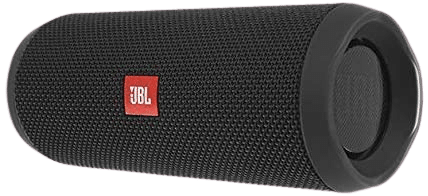
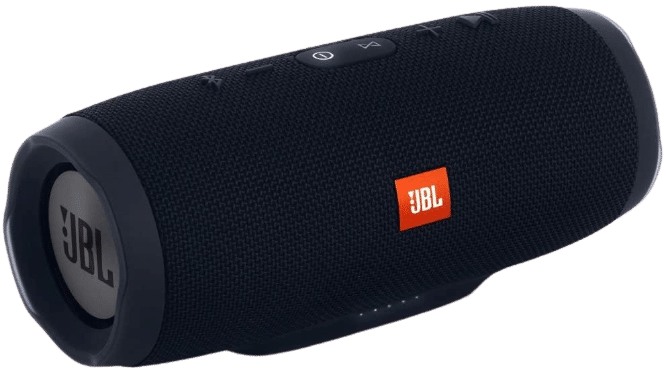

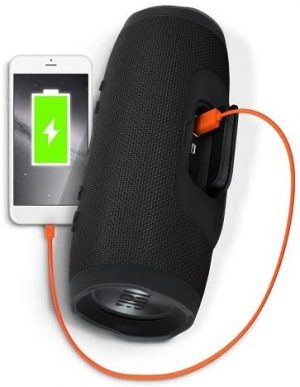

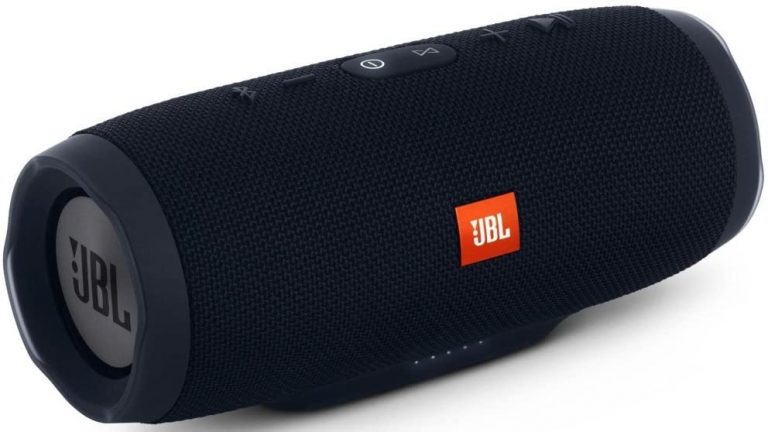
No comments:
Post a Comment